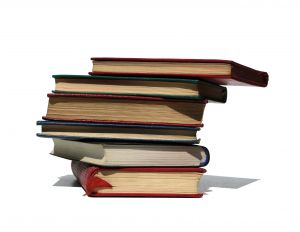 On Monday, in the shadow of then-Hurricane (now-Superstorm) Sandy, the U.S. Supreme Court heard oral arguments in Kirtsaeng v. John Wiley & Sons, Inc., a case involving the applicability of U.S. copyright law to copies of works created and legally acquired abroad and subsequently imported into the United States.
On Monday, in the shadow of then-Hurricane (now-Superstorm) Sandy, the U.S. Supreme Court heard oral arguments in Kirtsaeng v. John Wiley & Sons, Inc., a case involving the applicability of U.S. copyright law to copies of works created and legally acquired abroad and subsequently imported into the United States.
In the case, Supap Kirtsaeng, a college student from Thailand studying in the United States, launched a small online business selling textbooks. His family in Thailand bought foreign edition textbooks printed by Wiley Asia and mailed them to Kirtsaeng. Kirtsaeng then sold the textbooks online on sites such as eBay.com and reimbursed his family for the costs of purchase and shipping, retaining the remaining profits from the sale.
John Wiley & Sons subsequently sued Kirtsaeng in the U.S. District Court for the Southern District of New York, alleging copyright infringement, trademark infringement, and unfair competition under New York state law. As to the copyright claim, the district court judge determined that the language in 17 U.S.C. § 109(a), known as the “first sale doctrine,” does not include copyrighted goods manufactured abroad.
That section provides, in relevant part, that “the owner of a particular copy . . . lawfully made under this title, or any person authorized by such owner, is entitled, without the authority of the copyright owner, to sell or otherwise dispose of the possession of that copy.” Finding that the first sale doctrine did not apply to Kirtsaeng’s situation, the district court instructed the jury accordingly. The U.S. Court of Appeals for the Second Circuit affirmed the district court’s decision.
If the Supreme Court rules in favor of the publisher and copyright holder, then some fear that such a holding could expand copyright protection so much that it stifle consumers’ ability to resell any copyrighted product or those with any copyrighted components—including cars, books, and other commodities. Some fear that a broad ruling for Wiley could spell the end of library lending, charitable donations, and the resale of used goods.
On the other hand, as Justice Ruth Bader Ginsburg expressed during oral argument Monday, “[Kirtsaeng’s] reading is essentially, once a copy is sold anywhere, the copyright owner loses control of distribution everywhere.”
Regardless of the Court’s decision in this case—expected sometime next year—the issue will likely end up going to Congress to clarify the scope of copyright laws in these types of situations.
Additional Resources:
Transcript of Oral Argument Before the Supreme Court
Kirtsaeng v. John Wiley & Sons, Inc., Cornell Legal Information Institute (LII)
Supreme Court Hears Copyright Infringement Case, Hillicon Valley, October 30, 2012
Supreme Court to Hear Wiley v. Kirtsaeng Copyright Case, Opposing Views, October 29, 2012
How a Supreme Court Ruling May Stop You From Reselling Just About Anything, Ars Technica, October 28, 2012
